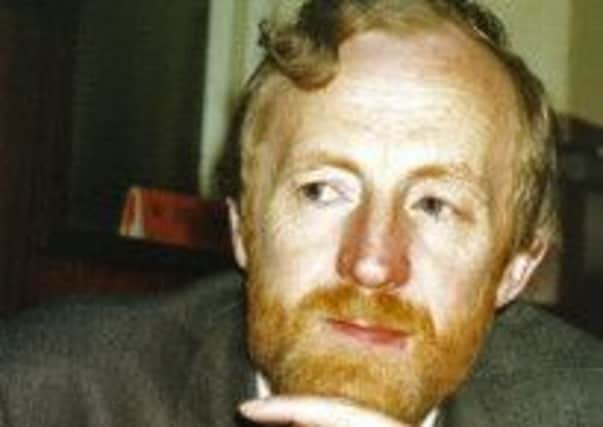Obituary: Ronnie Armstrong, head teacher, curriculum consultant and author


Ronald N Armstrong, who has died at the age of 72, was a much- admired primary school teacher and headteacher in several schools in the west of Scotland, before ending his career in education as a deputy director of the Scottish Consultative Council on the Curriculum (SCCC), based in Dundee.
Born in wartime as the elder son of Leslie and Cathie Armstrong, he was brought up in Dumbarton. His father died when Ronnie was 12, and his mother and two stalwart sisters nursed Ronnie through the rigours of TB, which resulted in a long stay at Mearnskirk Hospital, followed by sustained nursing at home, which gave him ample time for voracious reading.
Advertisement
Hide AdAdvertisement
Hide AdRestored to a degree of slightly fragile health which was to trouble him throughout his life, he successfully negotiated Scottish History and Literature and graduated from Glasgow University.
He entered teaching at Levenvale Primary in Alexandria, before joining the junior secondary department at Hartfield School in Dumbarton. It was here that he had typical success in having a sometimes recalcitrant class write and produce short plays; this bold venture somehow resulted in having a practical “toilet scene” in every play – much to the amazement and delight of his new recruits to theatre.
However, Ronnie decided that his talents were more suited to primary education, and he then taught at Aitkenbar Primary in Dumbarton before being promoted to deputy headteacher at Langlands Primary in Cumbernauld. In 1971, he married Dumbarton girl Anne Anderson, and the pair welcomed many visitors to what Ronnie referred as their “spilt-level” home.
Ronnie was next promoted to headteacher at Ladyton Primary in New Bonhill, before a brief period as lecturer in education at Jordanhill College. Unluckily for Jordanhill, a major reorganisation resulted in Ronnie’s rapid move to be headteacher at Springfield Primary, and then at Ardgowan Primary, both in Greenock. His years in Greenock were very fulfilling and productive, and he is fondly remembered by pupils, staff and parents at both schools.
Ronnie’s fine work in Greenock resulted in his being seconded to the SCCC for two years, where he became national development officer for environmental studies, drawing together interdisciplinary influences into a coherent framework.
Joining the permanent SCCC staff as deputy director took Ronnie regularly to Glasgow and Edinburgh before being faced with daily travel from Dumbarton to Dundee, which latterly took a toll on his health, leading to early retirement.
Ronnie had no shortage of new fields for his talents. He gave half a century to his great love, Dumbarton People’s Theatre, of which he was president from 1985. He excelled as actor, producer and writer, and was a guiding force and mentor to many, who benefited from his warm, witty and generous character.
His first production was Brecht’s challenging Caucasian Chalk Circle; he played Jimmy Porter in Look Back in Anger, and he introduced audiences and casts to an annual home-grown pantomime, beginning with Jock and the Beanstalk in 1974. He gave time and effort to football commentating for hospital radio; was much involved in the Quality of Life Experiment in the mid-1970s and served on the Advisory Committee on Children’s Panels; he was an active member of Dumbarton Burns Club, The Nomads Club and the Neil Munro Society.
Advertisement
Hide AdAdvertisement
Hide AdThe latter was launched mainly thanks to his friend the late Brian Osborne, with whom he formed a rich writing partnership, producing numerous annotated collections of Neil Munro’s humorous works. They also produced two plays (performed at St Andrews and Perth) and anthologies covering Glasgow, the Clyde, sport, the sea and crime; and their last joint enterprise was Scotland’s great ships.
Ronnie took great delight in his immediate family, and in the wider orbit in which he was the oldest of 15 cousins. He leaves his wife Anne, son Andrew and daughter Judith; and grandchildren Caroline, Robert, Rebecca, Toby and Jess.
DAVID HARVIE